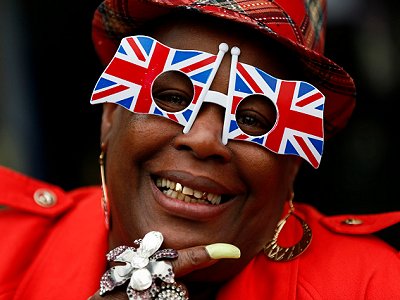
THE PATRIOTIC VOICE
An authentic and durable love of nation should make room for those who dissent; it might just be God speaking to us
Allegations by a national newspaper that Ralph Miliband hated Britain and that this must therefore have influenced his son Ed (though strangely, it seems, not the former Foreign Secretary, David) unleashed fervid comment before they were confined to a footnote of modern British political history in late 2013. The attack was never likely to impress the many who would want to defend their own parents’ honour as robustly as Ed Miliband, but it does raise some interesting questions of what we mean by patriotism today.
The Canadian philosopher Michael Ignatieff has distinguished civic nationalism from ethnic nationalism. The latter, by expressing itself in terms of ethnicity, makes minorities feel more precarious and is probably unsustainable in today’s migratory economy. In Britain itself, many communities feel sufficiently homogenous to maintain a sense of ethnic nationalism, but this is not as possible in the cities. Civic nationalism demonstrates itself in the shared commitments to institutions that define nationality. In Britain these might include among their number: Parliament, the judiciary and the rule of law, the monarchy, the Church and the military, yet there must be place within the polity for republicans, atheists and pacifists, which already qualifies civic nationalism. Softer institutions, like the NHS and the BBC may feature, but each of these has their detractors. As for the England football team, which might once have united the English if not the British, most football fans would rather their club did better than their country, demonstrated visibly in those who would rather support continental teams against some English ones in the UEFA Champions League.
This goes to show the fluidity of a patriotism where the nation has not been at threat of invasion for a generation and which is secure in its borders. The referendum on Scottish independence in 2014 will test the sense of how some perceive British identity, which will be especially interesting in the year we commemorate the hundredth anniversary of the First World War, for Britain has partly been defined by its wars.
The above suggests that an authentic and durable nationalism should make room for those who dissent. This keeps a nation open to challenge, which is vital to its health. Independent conscience is supposedly cherished in Britain today, but there is plenty of evidence that those who stand out from the crowd often suffer for it. Is there, though, a distinctive Christian view on patriotism?
Jeremiah is informative of the kind of love we are called to offer our country. The resolute prophecies he uttered about the fall of Jerusalem and the inevitability of exile to Babylon were considered treasonous by both politicians and public. It took staggering courage to say that another nation would triumph over Israel and that the people should embrace it as the judgment of God; one can just imagine what our media would make of Jeremiah. Yet, unlike others, the prophet loved his country enough to tell it unpalatable truths in the hope it would reform. The suppression of truth is sometimes deemed to be in the interests of a country, but the Book of Jeremiah is a probing challenge of such pragmatism.
Everyone sides with Jeremiah now, but it is hubris to imagine we would have then. The lone voice, or the view of a dissenting minority, rarely receives loving attention and people have an instinctive need to side with the crowd in self-preservation. This suggests that a true sense of patriotism affords respect and creates space for dissent from the common view. It might just be God speaking to us.
POPULAR ARTICLES

Obama's Covert Wars
The use of drones is going to change warfare out of all recognition in the next decades.

Through A Glass Starkly
Images of traumatic incidents caught on mobile phone can be put to remarkable effect.

What Are British Values?
Is there a British identity and if so, what has shaped the values and institutions that form it?


